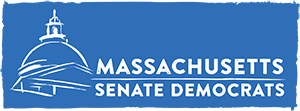Student nutrition bill, barring ‘meal-shaming,’ on the move

Shira Schoenberg | Commonwealth Magazine | September 24, 2021
This year, every school district can serve lunches to all students for free, under a federal policy established to combat food insecurity during the pandemic. But what happens when school returns to normal?
After three years of advocacy, Massachusetts lawmakers are on the verge of adopting new policies that would provide free lunch to more children while ending the practice of “meal shaming,” placing restrictions on children whose families owe money for meals.
“It’s time to bring an end to unconscionable methods of shaming students whose families can’t afford meals,” bill sponsor Sen. Cynthia Stone Creem, a Newton Democrat, said on the Senate floor.
The Senate on Thursday passed a version of a student nutrition bill, which passed the House July 29. While additional votes are necessary, support from both bodies means the bill is getting closer to Gov. Charlie Baker’s desk. A Baker spokesperson said the governor will review any legislation that reaches his desk.
The legislation, sponsored by Creem and Rep. Andy Vargas, a Haverhill Democrat, would require all school districts where at least half of students are low-income to enroll in a federal program that lets them offer all students free breakfast and lunch without collecting applications from each household. The federal government reimburses the school based on the number of low-income students it has. This ensures that more students can easily get school meals while reducing schools’ administrative burdens. School districts could get a waiver from applying if it would cause financial hardship.
In districts that charge for meals, the bill would ensure students get food without being embarrassed for debt. If a family owes money, the school would have to determine if the student qualifies for free or reduced price lunch, so eligible students can enroll. Schools could not give a student a meal that is different from what is offered to others, restrict the student’s activities, or publicly identify a student whose family owes money.
The bill’s genesis is a report the Massachusetts Law Reform Institute did in 2018, which chronicled the disparate practices districts have for addressing meal debt. In extreme cases, cafeteria workers were instructed to throw away a hot meal and exchange it for a cold cheese sandwich, publicly stigmatizing children. Students were prohibited from participating in sports, field trips, or graduation due to meal debt.
That report drew attention to the problem, and in 2019 the Legislature required districts to create and publicize their plans for handling meal debt. An attempt by advocates to prohibit student restrictions over debt was filed late in the session and never passed, after school business administrators raised concerns about parents who can afford to pay for meals but choose not to. The compromise bill was intended to make schools think about their policies, and make parents aware of them.
After COVID-19 hit, a bill prohibiting “meal-shaming” failed to pass last session. Advocates hope this year it will become law.
“As school districts and education returns to normal, we think it’s critical to keep children out of the middle of meal debt discussions and maximize the federal nutrition dollars available to states to feed every child,” said Pat Baker, senior policy analyst at the Massachusetts Law Reform Institute.
Legislation being considered by Congress under President Biden’s Build Back Better agenda would expand the number of schools eligible to offer universal free meals and increase reimbursements.
Robert Shaheen, director of food services at New Bedford public schools, noted that there are competing interests. Food service workers don’t want to deny children meals, but the USDA does not let schools give away meals for free, and debts must be paid.
Shaheen said if schools are eligible for the universal free meal program, but have a smaller percentage of poor students, the reimbursement rate is lower. “You have to decide as a program operator can you still meet your financial needs to pay staff, buy food at that lower percentage, and provide free meals to all the students,” Shaheen said.
In an ideal world, Shaheen said, the USDA would approve universal free meals for all students, just as it is doing during the pandemic. “For every school district to just include the meal as part of the education, that’s what we’d really be looking for,” he said.
